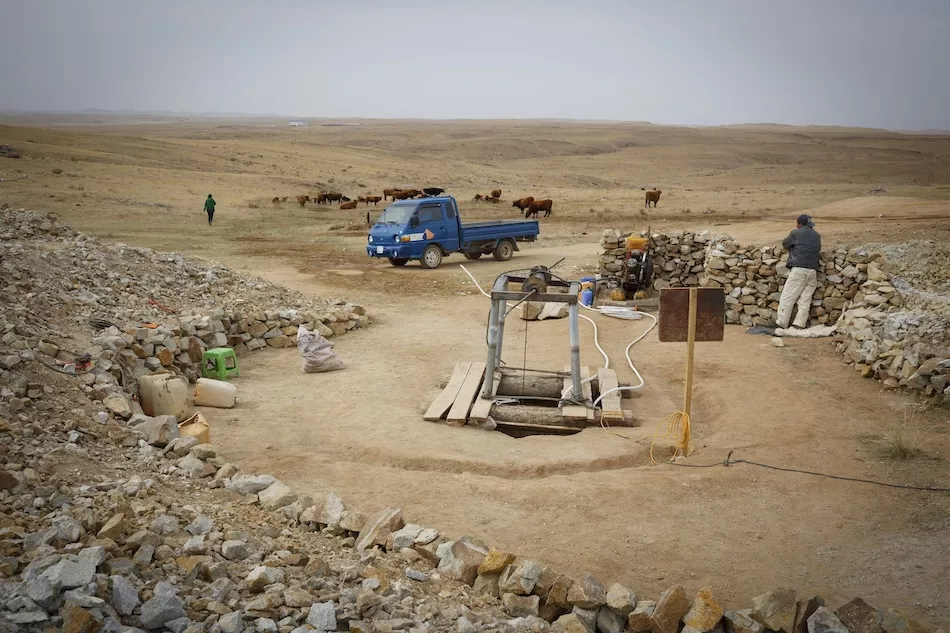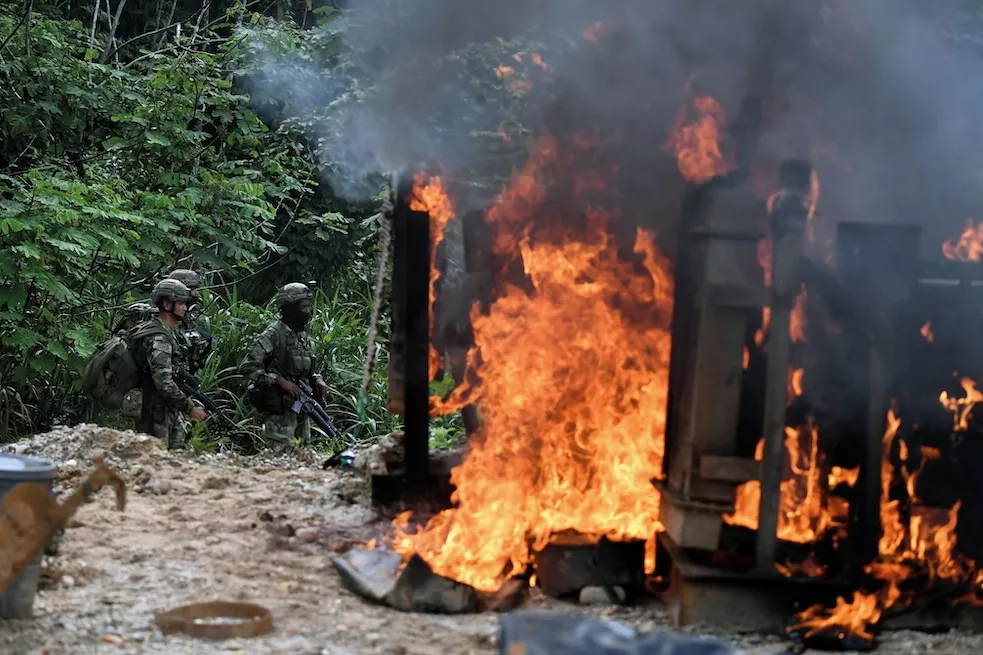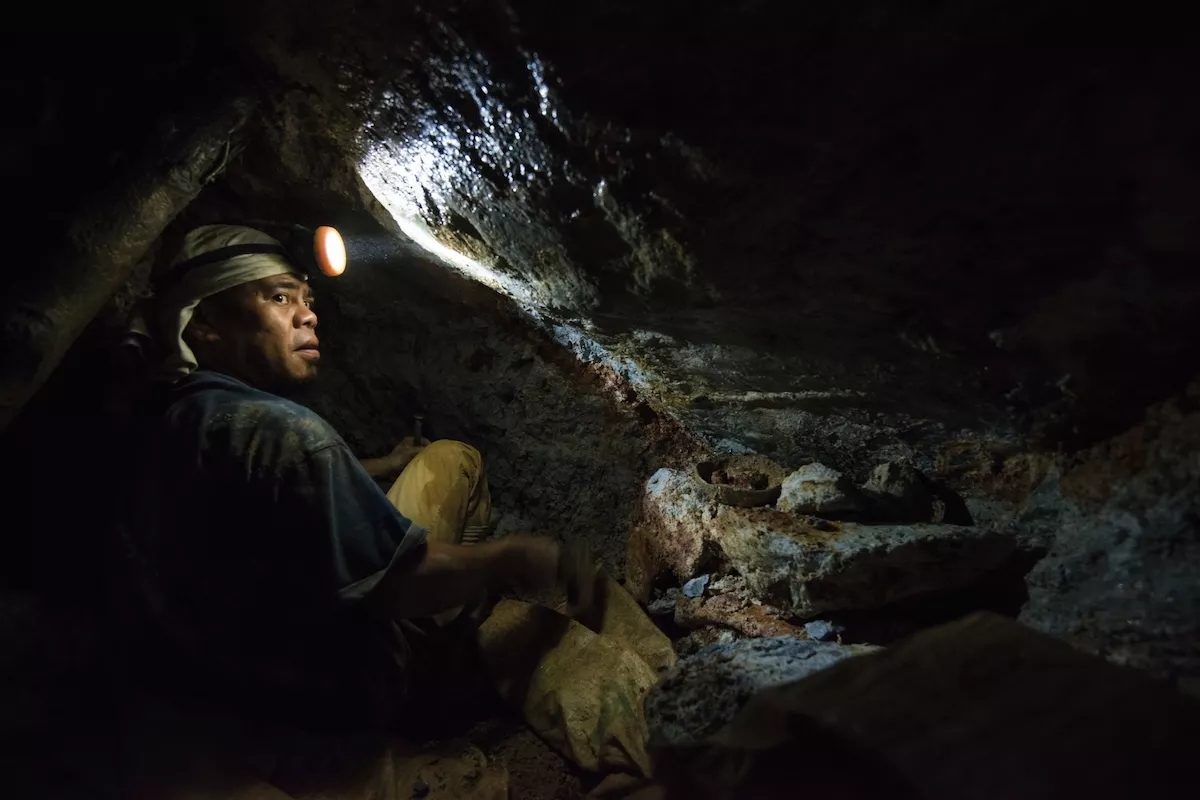Artisanal & Small-scale Gold Mining
The World Gold Council and its member companies support the responsible mining and trading of gold from all legitimate sources, including artisanal and small-scale gold mining (ASGM).
The Role of Gold Processing Plants in Artisanal and Small-Scale Mining

Our latest report, The Role of Gold Processing Plants in Artisanal and Small-Scale Mining, explores the potential role of gold processing plants in driving the sustainable formalization, legitimization, and professionalization of artisanal and small-scale gold mining (ASGM) value chains. It examines gold processing plants and their impact on the gold value chain, with a focus on six country case studies and 14 processing plants. Its purpose is to drive better understanding of the role that responsibly managed and commercially viable gold processing plants could play in improving environmental and social performance, incentivizing formalization, and facilitating more effective due diligence as the basis for growing the inclusion of responsible ASGM into responsible value chains.
The report reveals that processing plants significantly enhance gold recovery rates, boosting miners’ incomes and benefiting communities and governments through increased tax revenues. Processing plants also serve as key aggregation points in the gold value chain, promoting transparency and traceability. However, achieving commercial viability and responsibility requires overcoming challenges related to scale, infrastructure, and regulatory frameworks. With successful examples from Peru and Tanzania, the report highlights the transformative potential of responsibly managed plants and the continuous development needed for their success. Explore the detailed findings and insights from research conducted in Ecuador, Mauritania, Mongolia, Peru, Philippines, and Tanzania.
Download the full report
Silence is Golden: A Report on the Exploitation of Artisanal Gold Miners to Fund War, Terrorism and Organised Crime

The World Gold Council partnered with the Rt. Hon Dominic Raab to write a new report examining the systemic threats from the illicit trade of gold through artisanal and small-scale gold mining (ASGM). The Silence is Golden report finds the ASGM industry, responsible for an estimated 20% of annual gold supply and about 80% of gold mining employment, is being targeted by criminal gangs, armed groups and corrupt officials, presenting a real and present danger to international security.
The report notes the top fundamental challenges that plague ASGM are:
- The lack of transparency across businesses and governments for implementation and compliance with legal standards.
- Failures of accountability creating serious breaches of national law and international obligations, allowing criminals to operate freely.
- Criminals extracting enormous profits from serious human rights abuses, due to disconnected enforcement and compliance efforts across nations and international agencies.
In response, it outlines four strategic objectives with 24 practical actions for governments, international organisations, NGOs, mining companies and economic development organisations. These include prosecuting and disrupting criminal perpetrators and sustaining a coordinated and focused international effort across G7 and G20 countries to tackle these pervasive issues.
Download the full report below:
Watch: A Chatham House and World Gold Council Panel discussion on artisanal and small-scale gold mining
To mark the launch of Silence is Golden, we partnered with Chatham House in London, UK to host a panel discussion on addressing illegal gold mining. The conversation focussed on the expansion of illicit control and exploitation within ASGM, highlighting the pathways for governments and large-scale mining companies to drive meaningful change. You can watch the full panel discussion below, featuring a prestigious and expert group of commentators, including:
- Rt. Honourable Helen Clark (former Prime Minister of New Zealand)
- Marcena Hunter, Director of Extractives, Global Initiative Against Transnational Organised Crime
- Luca Maiotti, Policy Analyst, OECD Centre for Responsible Business Conduct
- Rt. Honourable Dominic Raab (former Deputy Prime Minister of the United Kingdom)
- Brad Brooks-Rubin, Partner at Arktouros PLLC (and former Senior Advisor on sanctions at the US state department)
- Ahmed, Soliman, Senior Research Fellow, Africa Programme at Chatham House
Artisanal and Small-Scale Gold Mining: What needs to be done?

This report sets out some of the challenges, what the World Gold Council (WGC) is doing and what it hopes others – in government, in the gold value chain, in international organisations and in civil society - will do. The issues are too serious to ignore.
The WGC recognises that other stakeholders have been working in the field over many years and we do not imply that we have unique insights. However, we strongly believe in the urgent need to work with others to mobilise a ‘coalition of the willing’ to turn things around. We hope, thereby, to realise a positive vision for the role that ASGM can fulfil for countries and communities if an enabling framework is provided and safeguards are implemented against corruption, human rights abuses and infiltration by organised crime.
Lessons learned on managing the interface between large-scale and artisanal and small-scale gold mining
The new in-depth study ‘Lessons Learned on managing the interface between the large-scale and artisanal and small-scale mining’ includes case studies from 25 mines, operated by 15 gold mining companies covering 18 countries.
This report explores how large-scale gold mining (LSM) companies are working with governments, civil society, and responsible ASGM entities to improve development outcomes, address human rights challenges, and reduce environmental damage. The report concludes that a key to progress is for governments to formalise responsible ASGM entities, giving them legal status and reducing their vulnerability to predatory middlemen, corruption or organised crime. The report urges the case for greater co-operation and dialogue between stakeholders to address the negative impacts of ASGM.
Download the full reports below:
The responsible development of gold resources both through large-scale mining (LSM) and ASGM, especially when coupled with sound governance, has the potential to deliver broad social and economic benefits to individuals, communities, and countries.
There has been a significant growth in artisanal and small-scale mining in many developing countries over the last twenty years. International institutions like the World Bank estimate that 15 to 20 million people derive their livelihoods primarily from ASGM and believe that up to 20% of newly-mined gold comes from ASGM sources. However, the great majority of ASGM takes place outside legal frameworks which causes an association with poor environmental, social and governance practices. ASM issues have become more salient in public policy debates as a result of the adoption of instruments designed to prevent the funding of illegal armed groups (such as the OECD’s Due Diligence Guidance on the Responsible Sourcing of Minerals) and from the implementation of the Minamata Treaty on reducing mercury in the environment.
To ensure mineral resources are developed and mined in ways that best support sustained social and economic development for the nation and local community requires clear government guidance and regulatory frameworks.
A female artisanal miner wearing full protective personal equipment further to the human rights-led formalisation interventions of the Sustainable Artisanal Mining project of Swiss Development and Cooperation and Government of Mongolia. Photo taken during Levin Sources-led expedition to train a gold refiner in responsible ASM, 2016.
Large-Scale Mining is very different from Artisanal and Small-Scale Mining
The impacts and social context for artisanal and small-scale gold mining (ASGM) are very different from those for large-scale mining (LSM) operations.
LSM requires significant upfront capital investment well before production begins or any returns are realised, as well as further sustaining investment, often over long periods. LSM is typically governed by strict regulatory controls, impact assessments, permits and inspections that include rigorous operating requirements, and are subject to performance standards in areas such as health and safety and management of environmental and social impacts. LSM operators are expected to make a substantial contribution to national tax and royalties income – which, in turn, should help to fund key public services like health and education. ASGM, on the other hand, is labour intensive and typically uses relatively simple production methods. It provides livelihoods to millions of people but generally occurs outside formal legal structures. This therefore poses a variety of dangers, including health and safety hazards and significant issues relating to the use of mercury, including water pollution (mercury is not used in LSM). As a result of weak regulatory oversight, ASGM is sometimes associated with human and labour rights violations and the activities of organised criminal groups in some regions. Over 80% of ASGM activity is estimated to work in the informal economy and, as such, it rarely provides significant tax revenues for host governments.
ASGM often occurs in locations where there is no LSM presence. Where legitimate ASGM activities and LSM occur in the same vicinity, there can be mutual benefit in working collaboratively towards more positive and sustainable outcomes and in seeking to avoid conflict. Many deposits developed by LSM operators would not be suitable for ASGM exploitation since ASGM may not have the necessary geological or metallurgical skills; the requisite safety and environmental standards and process; and do not have the capital needed to finance a potentially multi-billion mining operation. Similarly, many deposits utilised by ASGM would not be suitable for LSM. In each case it is for the national government of each country to decide the optimal model between LSM and ASGM development.
Potential roles for large-scale gold mining companies
The leading role of governments in formalising ASGM and in improving social and environmental practices is of fundamental importance. However, business and civil society leaders will likely also play an important supporting role. Any such role for LSM companies will vary according to the local context. However, as part of their role in supporting dialogue and engagement, large scale gold mining companies may consider a number of options including,: advocating for formalisation and legitimising ASGM activities; supporting ASGM groups in forming co-operatives or companies; facilitating market access for responsible ASGM operators; providing support to wean ASGM off the use of mercury; and utilising the Voluntary Principles on Security and Human Rights in implementing security strategies and implementing the UN Guiding Principles on Business and Human Rights in their interactions with ASM and local communities, including through the provision of appropriate grievance mechanisms.
OECD Due-Diligence Guidance on Responsible Mineral Chains and its Application to ASM
The World Gold Council, working through a consultative, multi-stakeholder process, published the Conflict-Free Gold Standard in October 2012. This provides a framework for large scale gold mines in operationalising the OECD Due Diligence Guidance for Responsible Supply Chains of Minerals from Conflict-Affected and High-Risk Areas.
We support access to gold markets for ASGM operations which are not linked to the funding or facilitation of conflict or criminal groups or poor safety, labour, or environmental practices. We recognise the constructive efforts of those governmental and civil society entities that are working, in good faith, to improve ASGM conditions and practices and to facilitate access to licit markets We are committed to working in close co-operation with the LBMA, whose Responsible Gold Guidance (v.9) sets out due-diligence processes and requirements that refiners should implement for accepting gold from ASM sources.
We welcome and support initiatives designed to enable legitimate ASGM operations to discharge reasonable due diligence enquiries such as the CRAFT Code and, for larger or more sophisticated, operations, the FairTrade and Fair Mined certification schemes. We also support the World Bank’s DELVE initiative designed to improve understanding of the presence, structure, and dynamics of artisanal and small-scale mining.
Central bank domestic ASGM purchase programmes
Formalising the sector in a responsible way can increase prosperity and alleviate some of the socially and environmentally damaging issues that beset the sector. Using domestic ASGM gold purchase programmes, central banks of gold-producing nations wield market power that can be used to foster and enforce lasting change through implementation of international standards and best practices. The World Gold Council has examined four countries whose central banks actively purchase gold from domestic ASGM production – the Philippines, Mongolia, Ecuador, and Ethiopia – and found that these programmes have the potential to support formalisation, encourage responsible ASGM practices and confer economic benefits.
You can learn more about this in our report Central Bank Domestic Purchase Programme
Definitions
For the purposes of this statement, the following definitions are used:
Alternative livelihoods
The development of different sources of income for individuals and families who are engaged in illegal mining or other illegal activities which have damaging social or environmental impacts in order to help divert them from these livelihoods.
Artisanal and Small-Scale Gold Mining (ASGM)
ASGM is a collective term embracing both small scale and artisanal mining. It covers formal or informal mining which is characterised by low capital intensity and high labour intensity and relatively simple methods for exploration, extraction, and processing.
ASGM can involve men and women working on an individual basis as well as those working in family groups, in partnerships or as members of co-operatives or other types of association. This does not include activities which are criminal, such as trespassing or armed incursions into active mining areas to steal mined or processed materials, or organised schemes involving inciting employees to steal refined or processed material.
Formalisation
Formalisation is a process that seeks to integrate ASGM into the formal economy through regulatory and policy reforms designed to address many of the negative associations of ASM. Legalisation is an important dimension of this process. It provides ASGM with security of tenure and an asset in which they can invest.
Illegal Mining
Illegal mining refers to mining or processing activities which run contrary to nationally or regionally applicable laws, including mining in areas allocated for use by other rights holders (where the rights holder has not given their permission for such exploitation) or where the methods used for extraction are in breach of accepted social and environmental laws or regulations.
Large-Scale Mining (LSM)
Large-scale mining refers to gold mining operations that are not considered to be artisanal or small-scale.
Legitimate Artisanal and Small-Scale Mining
The OECD Due Diligence Guidance Supplement on Gold sought to explore the issue of ‘legitimacy’.
We understand ‘legitimate’ ASM to refer to artisanal and small-scale mining which is undertaken consistent with applicable laws – i.e. where ASM activities are conducted within a legal framework and where artisanal miners can establish a right to mine in an area; or where a legal framework covering ASM does not exist, where such activity is undertaken in good faith and does not run counter to the legitimate property rights of others and occurs with due regard to the environment, safety, health and human and labour rights.
A further element in determining ‘legitimacy’ may be whether the relevant miners seek formalisation, where this is a viable option.
